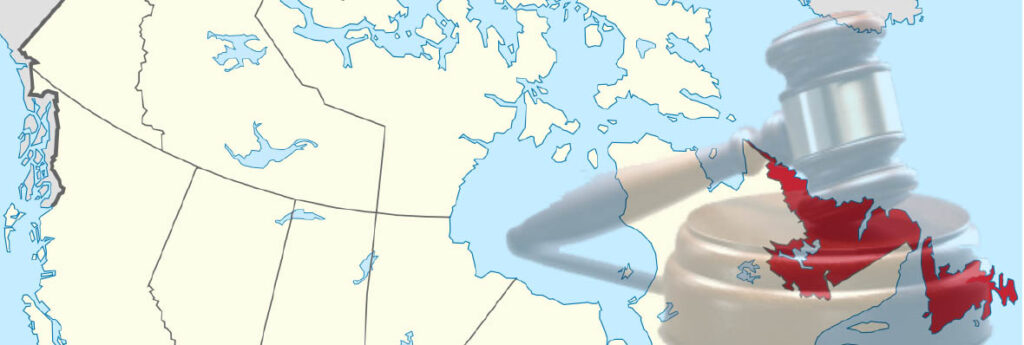Lawyers contesting Newfoundland and Labrador’s travel ban say the policy is arbitrary and violates mobility rights guaranteed in the charter. Closing arguments began Tuesday in provincial Supreme Court in a challenge of restrictions imposed last spring to limit the spread of COVID-19.
The Canadian Civil Liberties Association and Halifax resident Kim Taylor allege the measures restricting entry to residents and essential workers violate the Charter of Rights and Freedoms and fall outside the province’s jurisdiction.
Taylor’s lawyer, John Drover, told the St. John’s courtroom that Newfoundland and Labrador is the first province to shut its borders to other Canadians, adding that a closer analysis is needed of mobility rights in Canada.
He said the policy goes against the Constitution Act and the charter.
“We have put up, basically, international borders without the right to do so,” Drover said.
“We live in weird times, no question, but this is way over the top.”
The Canadian Charter of Rights and Freedoms states that every citizen has the right to enter, remain in and leave the country, and has the right to move to, and take up residence in, any province.
Justice Donald Burrage mulled from the bench that the drafters of the charter could have included more specific wording guaranteeing entry into another province for reasons other than moving or working there.
But Drover argued the mobility rights would have been considered self-evident.
“I don’t think any Canadian, or any politician, any lawyer or any judge has ever put to their mind that you could restrict Canadians from travelling around in Canada,” Drover said.
Rosellen Sullivan, representing the civil liberties group, is arguing the ban is arbitrary because more than 13,000 exemptions have already been granted, undermining its public health goals.
She argued Taylor had a “rock-solid” isolation plan yet was still refused entry. Taylor had asked to travel to Newfoundland after her mother’s death but was denied.
The decision was reversed, and Taylor was later allowed into the province, but she has said the decision came too late to allow her to grieve properly and comfort her father.
She and the civil liberties group filed their challenge in May. She is not seeking monetary damages in the claim but says she wants to spare others from having the same experience.
Sullivan also argued the ban is not necessary to minimize serious illness or death, as the chief medical officer of health claimed in her affidavit prepared for the case.
Sullivan noted that almost 80 percent of the province’s COVID-19 cases were already recovered when the ban was announced on April 29 and that a majority of cases in the province were related to a cluster that started before people entering the province were required to self-isolate for two weeks.
Chief medical officer Dr. Janice Fitzgerald, who ordered the ban, testified last week that the travel ban was an effective measure when paired with others such as physical distancing.
Justin Mellor, a lawyer representing the province, began presenting closing arguments on Tuesday afternoon.
He said the province has constitutional authority to enact the policy because the ban addresses an issue of public health, placing it “squarely within provincial jurisdiction.”

